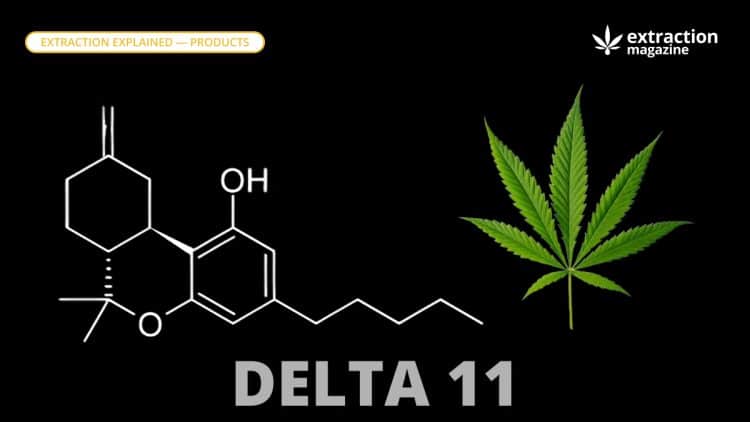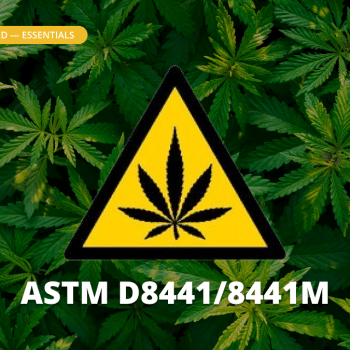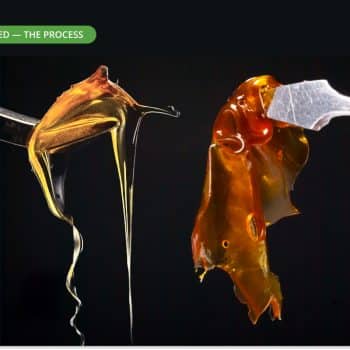Delta-11 is a newer and exceptionally rare cannabinoid, a natural substance found in the cannabis plant. It’s psychoactive, just like Delta 8, 9 and 10, but it’s estimated to be about 3 times stronger than Delta 9 THC.
Delta-11-THC: All You Need to Know!
Delta-11-THC (Delta-11-tetrahydrocannabinol) is one of the many isomers of tetrahydrocannabinol (THC), the active ingredient found in the cannabis plant.
What is Delta-11-THC?
Delta-11-THC is one of the components found in cannabis. It is a substance that affects our nervous system and can cause specific effects. Delta-11-THC can change our perception, mood and cause a feeling of relaxation. Some people use it to improve mood, relieve stress, or relieve pain.
What is THC?
THC is delta-9-tetrahydrocannabinol, a naturally occurring compound in the cannabis plant. It is the primary psychoactive component responsible for the high or intoxicating effects associated with marijuana use.
THC interacts with specific brain and central nervous system receptors known as cannabinoid receptors. These receptors are part of the endocannabinoid system, which regulates various physiological processes, including mood, memory, appetite, pain sensation, and sleep.
When consumed, THC binds to cannabinoid receptors, particularly the CB1 receptors, leading to various effects on the body and mind. These effects can include euphoria, relaxation, altered perception of time and space, heightened sensory perception, increased appetite (often referred to as the munchies), and potential impairment of memory and coordination.
Different varieties of cannabis contain THC in varying concentrations, and different factors such as plant genetics, growing methods and processing methods can affect its levels. Additionally, THC can be synthesized and used in medical products to treat certain conditions, such as pain, nausea, muscle spasms, and loss of appetite.
Why Are There So Many Forms of THC?
There are various forms of THC due to the structural and chemical complexity of the cannabis plant and its ability to produce different chemical compounds. The different forms of THC arise from variations in the molecular structure or arrangement of atoms, resulting in different isomers or analogs of THC.
A few reasons why there are multiple forms of THC:
- THC can exist in different isomeric forms, which have the same molecular formula but differ in the arrangement of atoms. The most well-known THC isomers are delta-9-tetrahydrocannabinol (delta-9-THC), which is the most abundant and psychoactive form, and delta-8-tetrahydrocannabinol (delta-8-THC), which has similar but less potent psychoactive effects;
- Through various biochemical reactions in the plant, scientists can synthesize THC;
- THC can undergo oxidation or degradation processes under certain conditions, such as exposure to light, heat, or air. These processes can result in the formation of different THC analogs or degradation products;
- Different cannabis strains can have varying compositions of cannabinoids, including THC. Factors like genetics, cultivation techniques, and environmental conditions can influence the production and levels of different THC forms in cannabis plants;
- Scientists and researchers continually study the cannabis plant to understand its chemical composition and potential applications. This ongoing research may uncover new forms or derivatives of THC with unique properties or potential therapeutic benefits.
The presence of multiple forms of THC offers a broader understanding of the chemical complexity and potential effects of cannabis.
Where is Delta-11-THC Used?
Delta-11-THC may be present in products containing cannabis, such as marijuana or cannabis extracts.
But What About Canada?
The use of Delta-11-THC in Canada may involve specific rules and regulations that are important to consider.
Some critical aspects related to Delta-11-THC use in Canada:
- In Canada, marijuana, including products containing Delta-11-THC, has been legalized for medical and recreational purposes. The Marijuana and Related Cannabis law passed on October 17, 2018;
- Canada has a medical marijuana system that allows patients to get a medical prescription for products containing Delta-11-THC. It allows patients with certain medical conditions to use marijuana for therapeutic purposes;
- Under the Cannabis Act, recreational use of marijuana, including products containing Delta-11-THC, is permitted in Canada. Individuals over 19 can purchase and use marijuana for recreational purposes. However, each province or territory may have additional rules and restrictions, so reading the relevant local regulations is essential;
- In Canada, you can buy marijuana and products containing Delta-11-THC from licensed vendors and suppliers who comply with rules and regulations;
- Canada has strict standards regarding the safety and quality of products containing Delta-11-THC.
Why Do You Need Delta-11-THC?
Delta-11-THC can affect the body, including euphoria, muscle relaxation, altered perception, and increased appetite. It also has potential medical applications for treating certain conditions, such as chronic pain, nausea, or loss of appetite in patients with cancer or AIDS.
Some of the effects of using Delta-11-THC:
- Delta-11-THC has psychoactive effects on the central nervous system. THC binds to cannabinoid receptors throughout your body. It can cause euphoria, altered perception, muscle relaxation, increased appetite and mood changes;
- Delta-11-THC may have potential medical uses. It can help reduce pain, reduce inflammation, alleviate nausea, and stimulate appetite. It is significant for patients with cancer, AIDS or other conditions that cause chronic pain or loss of appetite;
- Delta-11-THC can help achieve relaxation and reduce stress levels. Many users report that Delta-11-THC helps relieve stress, improve mood, and increase feelings of well-being;
- Delta-11-THC can be soothing, making it useful for those with insomnia or other sleep problems. It can help improve sleep quality and shorten the time to fall asleep.
Important: The effects of Delta-11-THC can be individualized and depend on various factors, including dosage, method of administration, body sensitivity, and context of use.
What Are The Benefits of Delta-11?
The specific benefits of delta-11 are not widely studied or well-known, as it is not as extensively researched as other THC isomers like delta-9-THC or delta-8-THC. However, as an isomer of THC, Delta-11-THC may share similar effects and benefits. It is important to note that further research is needed to fully understand the specific benefits and potential therapeutic applications of Delta-11-THC.
Some general potential benefits associated with THC that may extend to Delta-11-THC:
- THC, as a cannabinoid, has shown promise in alleviating certain types of pain, including neuropathic pain and pain associated with conditions like multiple sclerosis and cancer;
- THC has antiemetic properties, which can help reduce nausea and vomiting. It can benefit individuals undergoing chemotherapy or experiencing nausea due to other medical conditions;
- THC is known to increase appetite, commonly called the “munchies.” It may be helpful for individuals with decreased appetite or weight loss associated with certain medical conditions;
- THC may have muscle relaxant effects, potentially relieving muscle spasms or tension;
- THC can induce relaxation, euphoria, and mood enhancement, which may benefit individuals dealing with stress, anxiety, or certain mood disorders.
Consulting with healthcare professionals or experts knowledgeable in cannabinoid therapeutics can provide more accurate and up-to-date information regarding the potential benefits of Delta-11-THC.
How Do You Need to Use Delta-11-THC Correctly?
Proper use of Delta-11-THC is a crucial aspect to consider.
- It is essential to follow the recommendations and directions of your physician or specialist when using Delta-11-THC for medical purposes. You must choose the proper dosage to achieve the desired effect and minimize possible adverse reactions;
- You should pay attention to the quality and origin of products containing Delta-11-THC. Purchase them from reliable and trusted suppliers to ensure their safety and compliance with standards;
- Delta-11-THC can cause various side effects, such as dry mouth, palpitations, or autointoxication. See medical attention if you experience unpleasant or unusual symptoms after using Delta-11-THC;
- Remember, everybody is unique, and the reaction to Delta-11-THC may vary from person to person. Be aware of your differences and respond to your condition. If you have a medical problem or are taking other medicines, consult your doctor before using Delta-11-THC.
Is Delta-11-THC Safe?
The safety of Delta-11-THC is a topic that requires further research and scientific investigation. Specialists have conducted limited studies, specifically on Delta-11-THC, making providing conclusive information on its safety profile difficult.
It’s important to note that THC, in general, can have potential risks and side effects. Some common side effects associated with THC use include impaired coordination, cognitive effects (such as memory and attention), increased heart rate, dry mouth, and temporary changes in perception.
Additionally, THC can affect individuals differently based on dosage, individual sensitivity, mode of consumption, and overall health. Some individuals may experience anxiety, paranoia, or other adverse psychological effects from THC use.
If you are considering using Delta-11-THC or any THC-containing products, it is advisable to consult with healthcare professionals, such as doctors or medical experts knowledgeable in cannabinoid therapeutics. They can provide personalized guidance and help you make informed decisions based on your circumstances and health needs.
The Final Word
Delta-11-THC, one of the isomers of tetrahydrocannabinol (THC), holds intriguing potential within cannabis compounds. While research specifically focused on Delta-11-THC is still limited, it is part of a diverse family of THC variants that have captured the attention of scientists, medical professionals, and cannabis enthusiasts alike.
As we continue exploring the therapeutic applications and effects of Delta-11-THC, it is crucial to approach its use cautiously and comply with local laws and regulations. Understanding the individual properties and potential benefits of Delta-11-THC can contribute to informed decisions regarding its consumption.
Scientists and researchers are actively investigating the intricate world of cannabis compounds, shedding light on their properties and potential contributions to medicine and wellness.









